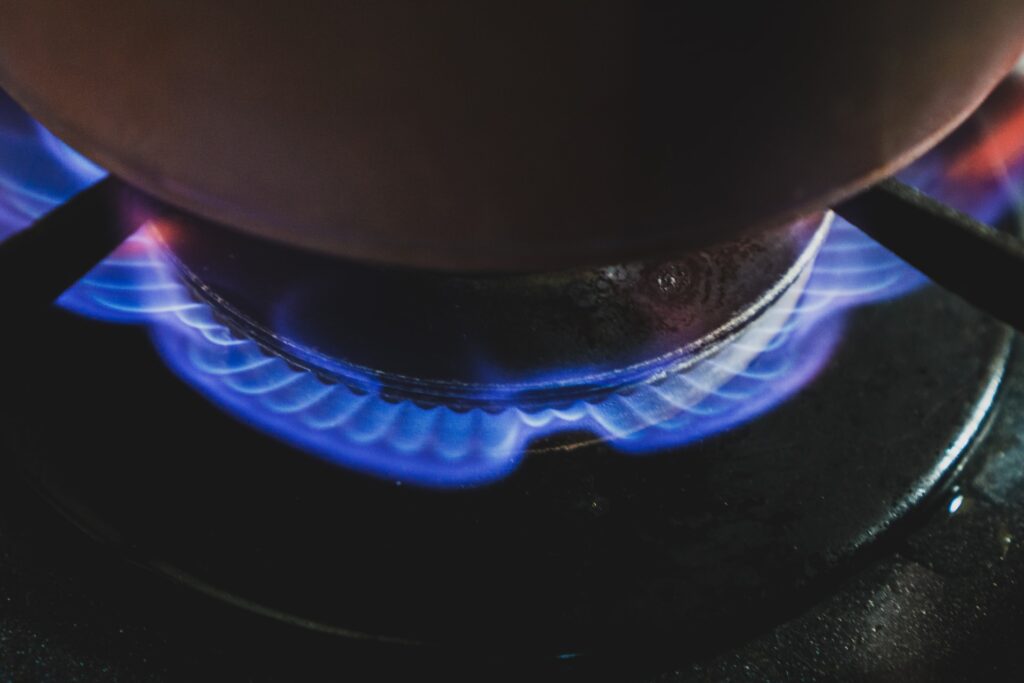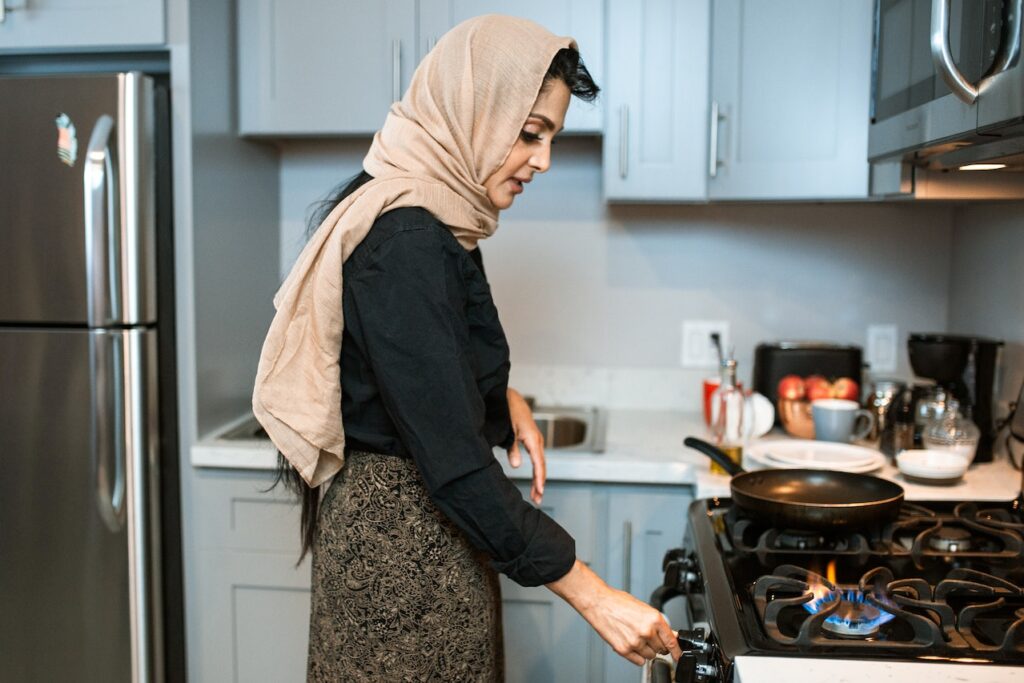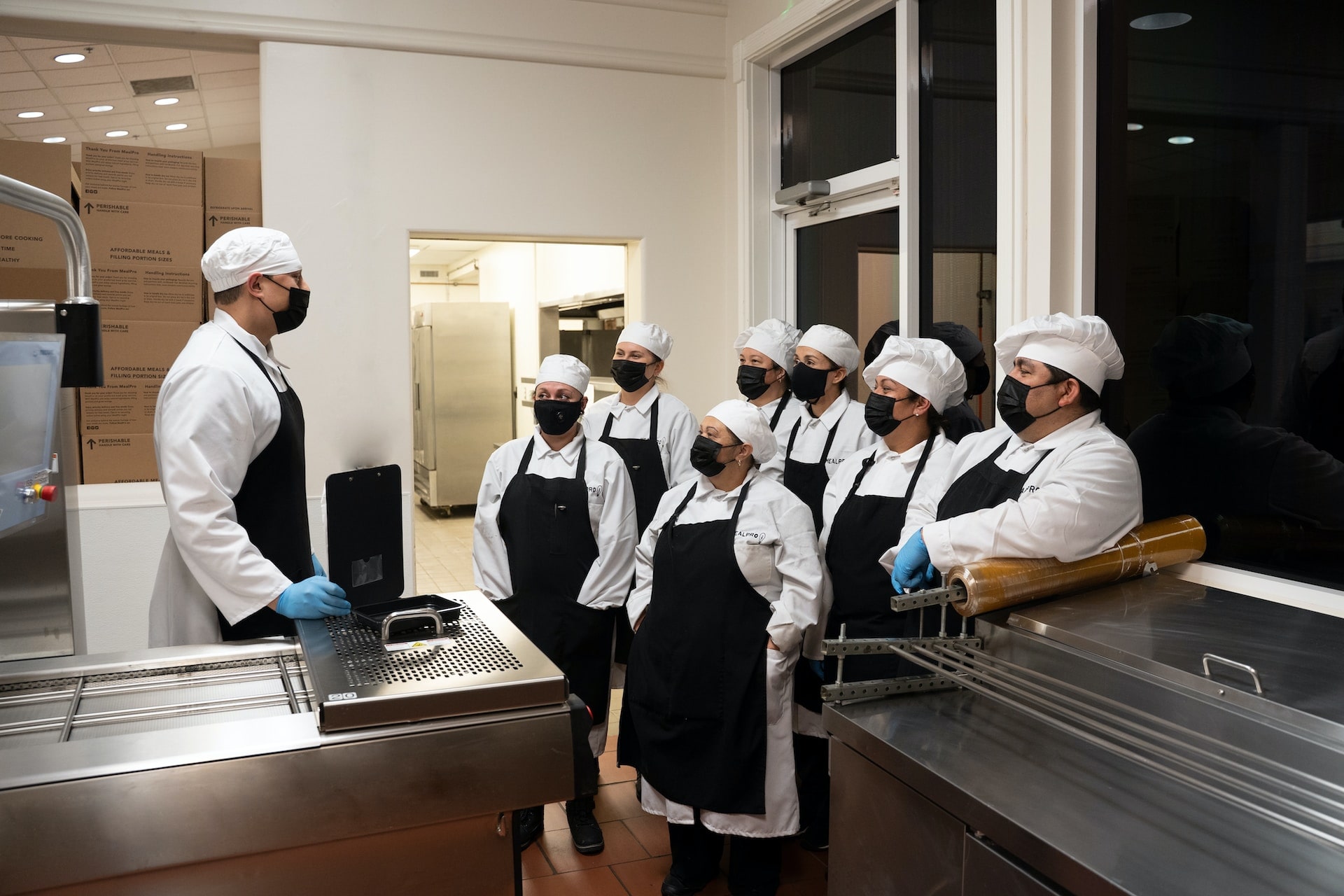Have you ever wondered, “Why Are Electric Stoves Better Than Gas?” It’s a question many people ask because electric stoves are like kitchen superheroes. They may not wear capes, but they cook your favourite meals faster, safer, and less messy. In this article, we will explore all the fantastic reasons why electric stoves win the battle in kitchens worldwide. It’s like discovering the secrets behind a magic wand that turns ingredients into delicious dinners.
So, let’s dive in and discover why electric stoves are setting the new standard for home cooking.
Table of Contents
Are Electric Stoves Better Than Gas?

No, electric stoves are not necessarily better than gas stoves, and vice versa. It’s like asking if apples are better than oranges. Electric and gas stoves have unique qualities, depending on what you need and like.
Electric stoves are like your trusty microwave; they’re simple to use. You turn the knob, and the burner heats up. There’s no need for matches or lighters. Electric stoves are usually safer in terms of not having an open flame, making them less likely to cause accidents. Plus, they are generally easier to clean because no grates or burners can be removed.
On the other hand, gas stoves are like a cool science experiment. They give you instant heat, like a match lighting up. Chefs love them because they offer precise control over the temperature. You can make it super hot or warm in a snap. However, cleaning them can be more of a chore because you must deal with grates and burners.
It’s not about which is better, like picking your favorite candy. It’s about what suits your style and needs. If you like easy and safe, electric stoves are for you. But if you’re all about the chef-like control and don’t mind a bit more cleaning, gas stoves might be your pick. Some people even mix it up and have both in their kitchen. It’s all about what works best for you.
Why Are Electric Stoves Better Than Gas?

Electric stoves are impressive, and they’ve got some super cool reasons why they’re better than gas stoves. So, let’s explore:
1. Safety First
One of the most essential reasons why electric stoves are better than gas stoves is safety, especially when you have kids around. Gas stoves utilize an exposed flame to apply heat to your cookware, which can be dangerous if not handled properly. On the other hand, electric stoves use coils or a smooth glass surface to generate heat. There’s no open flame, which means fewer chances of accidental fires. This is a significant relief for parents who want to keep their little ones safe in the kitchen.
Additionally, electric stoves often come with safety features like automatic shut-off mechanisms. If you accidentally leave a pot on a hot burner, the stove will turn off after a set period. This not only prevents overheating but also saves energy.
2. Environmentally Friendly
In today’s world, being eco-conscious is more critical than ever. Electric stoves have an advantage when it comes to being environmentally friendly. When cooking with gas stoves, harmful pollutants like carbon monoxide are released into the air. It’s essential to be aware of this potential danger to your health and take necessary precautions. Electric stoves, on the other hand, do not produce any emissions directly from the stove itself. The environmental impact of your cooking is significantly reduced with an electric stove.
Moreover, as the electricity grid progressively shifts towards greener sources of energy, such as wind and solar power, using electricity for cooking becomes an even more sustainable choice. In contrast, natural gas is a non-renewable fossil fuel and will always emit greenhouse gases when burnt.
3. Ease of Use
Electric stoves are incredibly user-friendly, and they are an excellent choice for beginners or people who don’t want to spend a lot of time managing the heat. You turn the knob to your desired temperature, and the stove heats up quickly and maintains a consistent temperature. This is great for cooking delicate dishes that require precise control over the heat.
Gas stoves can be more challenging to use for some. You need to ignite the flame, which can sometimes be tricky, and then adjust the flame to get the right heat level. It takes some practice to become a master of the gas stove. Electric stoves, however, are much more forgiving.
4. Cleanliness
Cleaning up after cooking can often feel like a daunting task. It requires effort, time, and patience to get everything back in order. But electric stoves make the process easier. Gas stoves have grates and burners that need to be cleaned regularly. Food particles and spills can easily fall through the grates, making it more challenging to keep your stove clean.
Electric stoves, on the other hand, usually have a smooth, flat surface. The absence of grates and burners means that there are no crevices for food to get trapped in. Cleaning is as simple as wiping down the surface with a damp cloth. This not only saves time but also ensures that your kitchen stays spick and span.
5. Cooking Evenly
When it comes to cooking evenly, electric stoves have an advantage. The electric coils or glass cooktop provides a consistent heat source that spreads evenly across the bottom of your pots and pans. This uniform heat distribution is especially important for tasks like simmering sauces or melting chocolate, where precise temperature control is crucial.
Gas stoves, on the other hand, can sometimes have hot spots or uneven heating, which can lead to uneven cooking. It can be frustrating to have one part of your dish overcooked while another part is undercooked. Electric stoves minimize this problem and help you achieve better cooking results.
6. Modern Aesthetics
Electric stoves often come in sleek and modern designs, making them an excellent fit for contemporary kitchens. The smooth glass cooktops add a touch of sophistication and can easily complement various kitchen styles. With gas stoves, the design tends to be more traditional and may not match the aesthetics of a modern kitchen.
If you’re renovating your kitchen or looking to give it a fresh, modern look, electric stoves come in a variety of styles and finishes to suit your preferences. This allows you to not only cook efficiently but also enhance the overall appearance of your kitchen.
7. No Gas Lines Needed
One practical advantage of electric stoves is that they don’t require a gas line connection. Suppose you live in an area without a natural gas supply or you want to set up a kitchen in a place where gas lines are not feasible. In that case, electric stoves are the most convenient choice. All you need is a standard electrical outlet, which is much easier to install than a gas line.
8. Energy Efficiency
Electric stoves have come a long way in terms of energy efficiency. Newer models often come with energy-saving features like induction cooktops. Induction cooking is highly efficient because it directly heats the pot or pan through magnetic fields, wasting very little energy. This results in faster cooking times and less wasted heat.
Gas stoves, while efficient, can lose some of their heat energy to the environment, especially if your kitchen is not well-ventilated. Electric stoves offer an energy-efficient alternative that can save you money in the long run.
9. Safety in Apartments
In many apartment buildings, gas stoves are not allowed due to safety concerns. Electric stoves are often the default option in such cases. Gas leaks can pose serious risks, but with their use, such risks can be eliminated, and building managers and landlords find them to be a safer choice for multi-unit dwellings. If you live in an apartment, an electric stove may be your only option.
10. Lower Upfront Costs
Electric stoves are generally more affordable than their gas counterparts, both in terms of the appliance’s purchase price and installation costs. If you’re working with a tight budget, this can be a significant advantage. You can get a high-quality electric stove without breaking the bank.
Do Chefs Prefer Gas or Electric Stoves?
Yes, some chefs prefer gas stoves, while others prefer electric stoves. It depends on their personal preferences and the cooking they do.
Some chefs favor gas stoves because they provide instant heat and precise temperature control. When you turn the knob on a gas stove, the flame is there, ready to cook your food immediately. This is important in professional kitchens where timing is crucial. Chefs can quickly adjust the heat as needed, making it easier to sear, simmer, or sauté with precision.
On the other hand, electric stoves have their advantages. They are often easier to clean since no grates or burners can be removed. Electric stoves also provide even, consistent heat, which can benefit tasks like baking. Some chefs focusing on baking or pastry work prefer electric stoves for their reliability.
Ultimately, the choice between gas and electric stoves comes down to the chef’s specific cooking style and what they are most comfortable using. Some chefs even prefer combining both in their kitchens to have the best of both worlds. So, there isn’t a one-size-fits-all answer – it’s all about personal preference and the demands of the dishes they create.
Conclusion:
While both electric and gas stoves have their merits, electric stoves offer several advantages that make them a better choice for many people. They are a safer and more environmentally friendly alternative, and they are designed to be easy to use. Electric stoves also provide the convenience of easy cleaning, even cooking, and a modern aesthetic. Additionally, they are suitable for apartments, require no gas lines, and can be more cost-effective in terms of upfront costs and energy efficiency.
Ultimately, the choice between electric and gas stoves depends on your individual needs and preferences. However, electric stoves have certainly earned their place in modern kitchens for their many practical benefits. Whether you’re a beginner in the kitchen or an experienced chef, electric stoves can simplify your cooking process and make meal preparation more enjoyable and stress-free.
FAQs
Are electric stoves more energy-efficient than gas stoves?
Yes, electric stoves are more energy-efficient as they convert most of their energy into heat.
Are electric stoves safer than gas stoves?
Electric stoves are considered safer as they eliminate the risk of gas leaks and open flames.
Do electric stoves come in modern designs?
Yes, electric stoves are available in various modern and sleek designs to complement your kitchen decor.
Do electric stoves emit less heat into the kitchen?
Yes, electric stoves release less heat into the kitchen, providing a more comfortable cooking environment.



